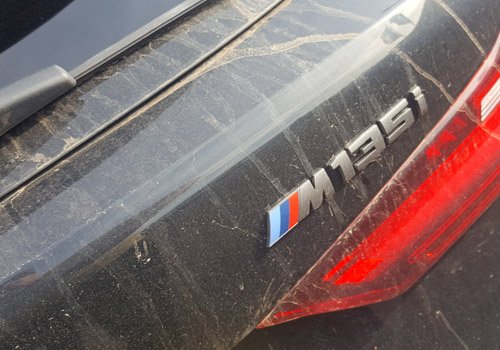
What are the things which frustrate people the most when renting a car?
What can car rental companies do to win more customers, and earn their trust and loyalty?
So what are the things which frustrate people the most when renting a car?

Page content
Additional Driver Fees
Additional Driver Fees are imposed by many car rental companies when drivers other than the primary renter are added to the rental contract. These fees are usually charged on a per day
basis and vary from one rental company to another.
Additional Driver Fees (also referred to in the US and elsewhere as Additional Authorized Operators Fees
or something similar) are to cover admin costs involved in adding extra drivers, which would include ID, licence and age checks, plus the additional insurance cover applied throughout the rental.
Some car rental companies offer free additional drivers to be added as one of the benefits of their loyalty scheme, but it's always best to find out what the conditions and costs are before proceeding with your reservation.
Age Restrictions
Car rental companies often have age restrictions that can be frustrating for some customers, especially younger drivers. They could find that they’re either unable to rent a car through some car rental companies in certain countries, or that they have a very limited number of vehicle to choose from. In addition there is likely to be a surcharge.
This might seem unfair and look like another way of the car rental company to make money, but there are legitimate reasons for age restrictions and surcharges which are described in a separate article.
Billing and Payment Issues
Billing problems, including overcharging and lack of clarity over surcharges are common complaints. If the price or information displayed for the vehicle, ancillary items, insurance waiver and fuel options, are found to be incorrect, this can lead to disputes.
Other reasons for confusion and concern can be due to security deposits and unauthorised credit card charges, surcharges for age, one way rentals, cross border fees, late cancellation, no shows, and early or late return of the vehicle.
With around two thirds of car rentals being booked online, it is increasingly important for the information, pricing, surcharges and rental terms to be accurate and consistent with other reservation channels.
In simple terms this means that there should be consistency between the online reservation process, the systems that the customer service teams use, and those which the staff at the rental location use.
Cancellation Fees
As with most charges and conditions, cancellation fees will vary from company to company.
Renting through a broker website such as Expedia, Rentalcars.com etc can result in cars behind rented from one of the major car rental brands, but with different terms regarding cancellation.
Ironically if you have pre-paid for your reservation, you might find that the terms and conditions for cancelling a reservation are quite different to a reservation which you have chosen to pay for at the location when you pick up the vehicle.
For some car rental companies, if you have prepaid for your reservation, you could be entitled to a full refund provided that you have cancelled more than 48 hours before the time of pickup. The closer you get to the reservation, the more likely you are to lose either all or a proportion of what you have paid, and there might be administration costs involved too.
Those customers who have not pre-paid could find themselves with no charge at all, even if they cancel just before the pickup time, although there could be no show
fees applied if you fail to cancel and don’t turn up.
Credit Card Deposits
Concerns about security deposits and the amount held on the credit card are common. The amounts can vary from company to company, and can also be influenced by the vehicle you rent.
Other terms also commonly used for deposits include pre-authorised deposit and guarantees, holds, security deposits, and bonds. For simplicity I’ll refer to them as deposits
Credit card deposits for car rentals are temporary authorisations placed on a card to ensure the availability of funds for potential expenses associated with the rental. This could include fuel charges, late return fees, damage charges, cleaning, and toll fees which the rental company might receive.
That was my holiday spending money!
I have heard complaints where money which had been saved for spending money during a vacation has been severely hit by the need to pay the deposit on the car rental.
Understandably that can be upsetting, but it should also be understood that the car rental company allows expensive vehicles to be driven by strangers for a period of time, and they need to ensure that those customers have the means to cover additional unforeseen costs which might be incurred during the rental.
Although they vary, these deposits are largely unavoidable, but the best approach from the car rental company’s perspective is to make clear during the making of the reservation that:
(a) a deposit will be required,
(b) the reason for the deposit, and
(c) what the deposit amount will be.
It's important to understand that credit card deposits are not actual charges, but temporary reservations of a specific amount of the customer's available credit. Once the final charge is processed after completion of the rental and any fees have been determined, any remaining deposit amount is released back to the customer's credit card.
Damage DisputesDamage to cars on rent is common. But who caused the damage is often disputed.
Whilst occasional damage is inevitable, disputes are avoidable...
Damage to cars on rent is common. But who caused the damage is often disputed.

Car Rental Damage Disputes
It is understandable that some customers would be upset to find that they damage charges for pre-existing damage to their rental vehicle.
Inspection processes can vary from company to company, from location to location, and can also depend on how busy that location is, and their staffing levels at the time when the previous renters of the vehicle returned it.
These are not valid reasons for inadequate inspections being made, but they do have a bearing in reality. Of course it could be expected that when the vehicle goes through the cleaning and preparation process before being rented out again, and existing damage would be spotted and noted.
From a customer perspective...
To reduce the chance of disputes, walk around the vehicle before you drive it away, taking photos on your phone of any dents or scratches, no matter how small, and ideally showing them to a member of staff before you take the vehicle. Use the torch on your phone if the car is under cover, and observe the vehicle and each panel from different angles.
When you return the vehicle, also walk around it taking photos with your phone. This time you’re not looking for dents and scratches, but taking photos to prove that there is NO new damage to the vehicle since the beginning of the rental.
You might also find that if the rental company has a mobile app through which reservations can be made or retrieved, it could provide the means for you to upload photos so they can be stored in association with your reservation.
From a rental company perspective...
If you need to process more returns than you have capacity for, speeding up the process with technology such as the AI powered vehicle inspection solution provided by focalx can improve efficiency, saving you and the customer time and with greater accuracy.
Telematics Technology
The use of telematics technology can also help to avoid disputes over damage, because car rental companies who use telematics such as those provided by RentalMatics receive instant notifications due to impact... even slight... which can pinpoint date, time, and many other factors to help build a detailed impact report.
Car Rental Fuel Policies
Complaints can arise when customers are unclear about or disagree with the fuel policies. Some may feel they were unfairly charged for fuel upon return, while others may be dissatisfied with the refueling options.
Many car rental companies offer a Fuel Purchase Option (FPO) which would allow you to receive the car with a full tank of fuel, and not have to refill it when you return the car.
There is a level of convenience with this, but you might not be happy when you return the car half full and aren’t entitled to a refund on the unused fuel that you have paid for.
If the Fuel Purchase Option is not taken and the car rental company need to refuel the vehicle, the costs to do so can be quite high, and based on a multiple of the current pump fuel costs. Admin and the labour cost of a member of staff having to carry out the refuelling are also taken into account.
So a full-to-full
option is preferred by many customers, where the tank is full when the car is handed over to you, and you refill it before you return it.
There is also a more relaxed approach whereby the rental company will tell you that the car as about half full, and would like you to return it with roughly the same amount in the tank. Even with this simple informal approach, it’s advisable to take a photo of the fuel gauge before you drive the car away, and again when you return it.
Insurance and Liability Coverage
Confusion about insurance coverage and liability issues can lead to complaints. Customers may not understand what they are covered for with the basic CDW (Collision Damage Waiver) and TP (Theft Protection) coverage, nor the excess amounts applicable. This can lead to disputes during the rental period or when returning the vehicle.
Additional insurance excess waiver options might seem costly and put some customers off, and some of those customers might prefer to use insurance offered by their credit card company. However, the credit cards terms of coverage need to be clearly understood beforehand, because their coverage might not be sufficient.
Other third party insurance options are available, and sometimes their cost can seem more favourable than the additional coverage offered by the car rental company. However, you need to be aware of the process when making a claim, and who you’ll be dealing with. It might be easier to be dealing directly with the rental company themselves without having to go through a third party.
Lack of transparency, lack of trust
As you can see, many of the complaints about car rental relate to Hidden Fees and Charges
and a lack of transparency.
Transparency means clarity, and a lack of clarity in pricing, fees, cancellation terms, insurance terms and excess amounts, fuelling costs and options, etc., can result in dissatisfied customers.
You don’t know what you don’t know!
If there is a lack of transparency whilst you’re making a reservation, on one hand it might not be apparent to you because you don’t know what you don’t know
and you might only become aware of a lack of transparency at a later date when you’re suddenly faced with charges or restrictions which you hadn’t previously been made aware of.
However, if you’re looking for something specific and cannot find it because that information has been hidden deep in the terms and conditions, or is completely missing from the reservation process, you’ll develop a lack of trust with that car rental company.
Perhaps the information is there, but if it too vague, ambiguous, or maybe even contradicts other information elsewhere in the reservation process, that can only lead to confusion and possible unexpected charges, restrictions, disputes and complaints.
As previously stated, clear disclosure of mandatory fees and charges is a requirement which has the weight of many governing and regulatory bodies behind it, including the CMA, ECRCS and others, and rental terms, Ts&Cs and other means of communicating charges should be easily accessible and clear to understand.
Links to some of the regulatory bodies and their codes of conduct can be found at the bottom of the page




